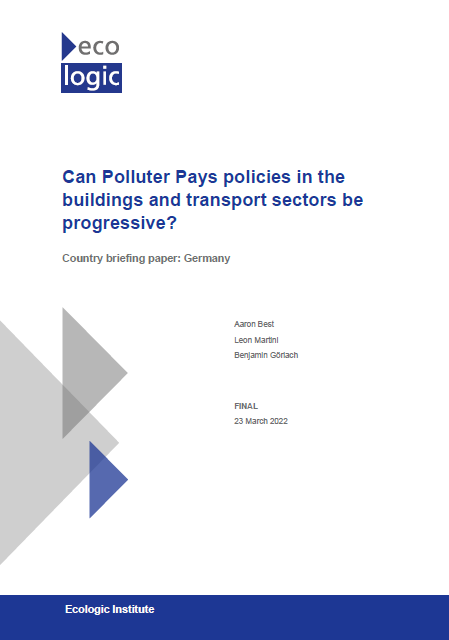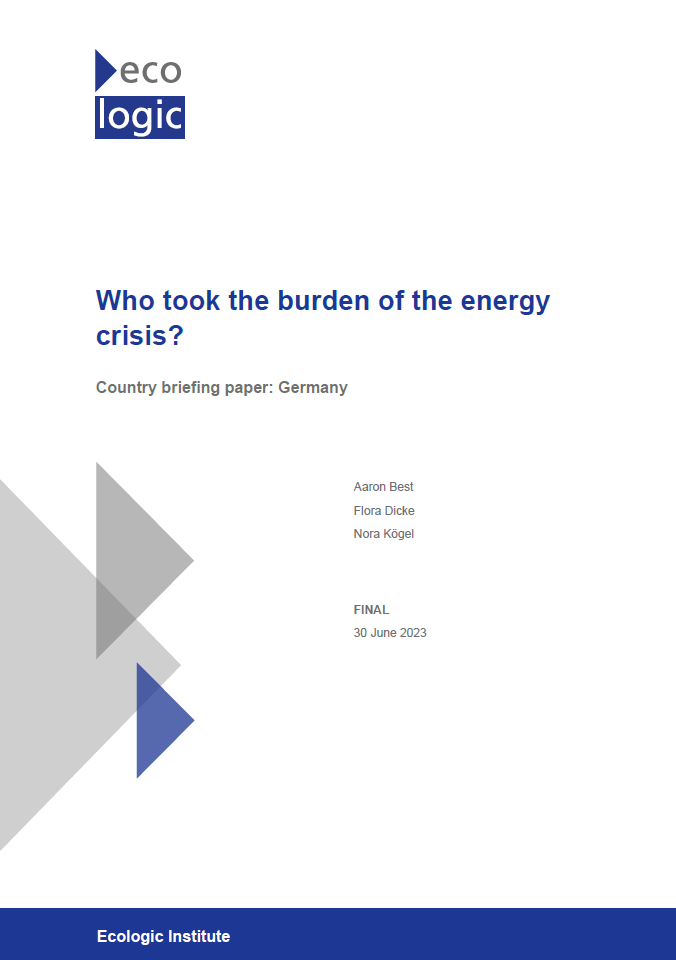Can Polluter Pays Policies in the Buildings and Transport Sectors be Progressive?
Country briefing paper: Germany
- Publication
- Citation
Best, Aaron, Leon Martini, and Benjamin Görlach (2022): Can Polluter Pays policies in the buildings and transport sectors be progressive? Country report: Germany. Ecologic Institute, Berlin.
The European Commission's Fit for 55 package proposes two significant reforms to energy pricing in the EU:
- Energy Taxation Directive (ETD) reform; and
- Establishing emissions trading for emissions from buildings and road transport (ETS2).
These changes are intended to better align the costs of using fossil fuels with the polluter pays principle and help reduce some environmentally harmful subsidies to fossil fuels. The reforms would thus help create a more level playing field for renewable energies and accelerate the transformation to a climate-neutral economy that the EU and its Member States have committed to achieve. Research on carbon pricing and energy taxation has found large emission reduction potentials stemming from the introduction of carbon pricing in Germany.
A concern among stakeholders is how these reforms would impact lower income households. Various policy mechanisms are under consideration to help address potential distributional impacts. Based on a microsimulation model developed by the Basque Centre for Climate Change (BC3) with IEEP, this report analyses a series of reform scenarios supported by graphical depictions of their distributional effects in Germany.
The results show that combined reform of the Energy Taxation Directive and extension of emissions trading to buildings and transport – if combined with well-designed compensatory measures – could have progressive distributional impacts in Germany and benefit poorer German households financially.
Key findings:
- ETD reform has little effect on household costs in Germany.
- Combined reform (ETD and ETS2) without compensatory measures reduces available household incomes in Germany by about 1 % to 1.35 % depending on income group.
- A lump-sum revenue recycling via the proposed Social Climate Fund would yield a distribution of approximately 15 € per German household, not enough to fully offset the loss in disposable household income of carbon pricing in Germany.
- A lump-sum recycling of all ETS2 revenues to all German households would yield a distribution of approximately 170 € per household, generating net welfare benefits for the poorest households in Germany compared to the situation without a carbon price.
- Reducing electricity taxes and abolishing Germany’s renewables levy on electricity (EEG levy) would have progressive effects and speed up electrification.
Conclusions:
- Reducing electricity costs is progressive and speeds electrification.
- Ambitious levels of revenue recycling are necessary to significantly offset welfare impacts.
- The German government should support implementation of the Social Climate Fund.
- In the short term, Germany should front-load the implementation of its national compensation system, the Klimageld, and cut the electricity tax.
For further details, please see the full report.





